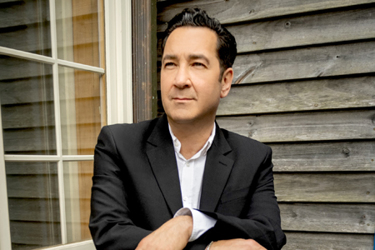Coordinates of COVID-19 Press Aligos Therapeutics To Pivot On Multiple Fronts

By Rob Wright, Chief Editor, Life Science Leader
Follow Me On Twitter @RfwrightLSL

Editor’s Note
Lawrence Blatt, Ph.D., cofounder and CEO of Aligos Therapeutics, a San Francisco-based biotech discovering and developing curative treatments for hepatologic diseases and viral infections, will be featured in an upcoming issue of Life Science Leader. Don’t miss out on learning about this executive’s fascinating entrepreneurial journey by becoming a subscriber today.
I first sat down with Lawrence Blatt, Ph.D., to discuss his entrepreneurial expedition during the annual J.P. Morgan healthcare conference. At the time, the coronavirus (SARS-CoV-2) seemed more of a Wuhan, China problem. How quickly things would change. “The Bay area was particularly quick to react to the COVID-19 threat, and we went on lockdown weeks ahead of anyone else in the country,” states Blatt during a subsequent telephone interview. But in the weeks prior to CA counties instructing just about everyone to stay home, many large tech companies had already begun implementing their own “flatten-the-curve” measures. “It was late February early March, and we could see China was getting back to work.” Blatt, cofounder and CEO of Aligos Therapeutics, a San Francisco-based biotech discovering and developing curative treatments for hepatologic diseases and viral infections, wanted to understand how this was possible. “We conferenced with a number of our Chinese partners and learned that they had elaborate protocols for how people were working, including the mandatory wearing of masks.” As biotech was deemed an essential service, Aligos adopted and implemented these protocols almost immediately, while proceeding with what he describes as extreme caution. “We have a pretty elaborate strategy for how people come in and out of the building, self-reporting of illness, temperature gaging, and surfaces being cleaned every three hours. We have hand sanitizers and enough space that nobody has to sit within six feet of each other.” And, employees at Aligos were wearing masks more than a month before federal and state governments thought it a good idea to do so. “In fact, the recommendation at the time was for the general population to not wear masks,” Blatt emphasized.
Another protocol that was implemented came through an employee suggestion. “When we started working during the formal lockdown, people were worried about proximity to others while in the lab,” Blatt explains. The biology team came up with the concept of rotating shifts to reduce the amount of people in the lab at any one time. “We adopted that suggestion that day, which is something you are able to do in a small company like Aligos.”
Like many, the company is also making extensive use of video conferencing to keep in touch internally. “Externally, we've adopted protocols for video conference calls that are more formalized. For example, if meeting with external bankers or investors, you dress like you would if you were meeting in person,” explains Blatt. The company is also stepping up its capabilities in terms of technology, such as using dedicated web cameras rather than what comes built into computers, as Blatt believes virtual meetings (internal and external) will become the norm for quite some time.
But Aligos also made a strategic R&D pivot, announcing (April 15, 2020) intentions to develop treatments for viruses that have pandemic potential. “We approached Luxna Biotech to extend our license agreement, because we believe their nucleotide stabilization technology offers a unique solution to coronavirus.” Besides, Blatt’s team has a long history of working in respiratory viruses. “In fact, when we were at Alios [the first company he cofounded], we developed therapies for respiratory syncytial virus (RSV) for influenza, and actually had a coronavirus program.” This explains how his former employer (J&J) was able to announce the selection of a lead COVID-19 vaccine candidate so quickly.
There’s been a great deal of buzz around existing therapeutics being tested as possible treatments for COVID-19. Blatt says it is quite natural to want to try just about any off-the-shelf drug using any sort of rationale, but asserts success against coronaviruses requires therapies be purpose-built for this coronavirus, while also being broadly active. This is because the current outbreak represents the third zoonotic jump of a coronavirus from animal to human, and what’s to say we won’t have another. “Because of the unique skills we can bring to bear, we felt an ethical obligation to jump in and help,” he concludes.
Let’s hope the efforts of Aligos and others prove successful.
Editor’s Note
As of this writing, incidence of coronavirus in the greater Bay area remains relatively low when compared to other metropolitan areas, and Blatt is thankfully to report that none of his current employees have tested positive. And though Aligos Therapeutics was ahead of the curve in implementing various coronavirus safety measures, he credits the Bay area’s relative success to that of local government decision making, as Sara Cody, M.D., Santa Clara County’s Public Health Officer, implemented the first and most stringent isolation order in the United States.
